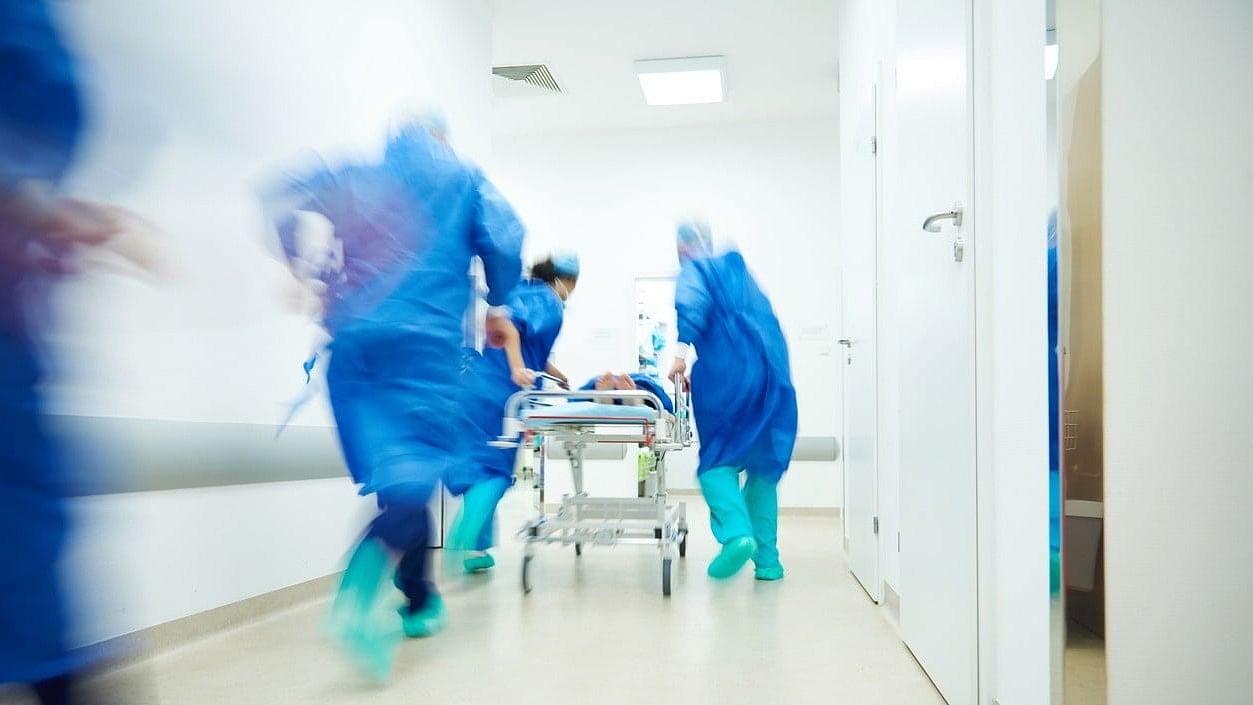
The person, who would be addressed as Good Samaritan, should also be allowed to leave the hospital premises after his work is done.
(Representative image)
Credit: iStock Photo
Jaipur: Rajasthan government would now pay Rs 10,000 to the Good Samaritan, who brings a seriously injured road accident patient, to the nearest hospital for treatment, ideally in the Golden Hour. But road safety activists say there is a serious lack of awareness about this ongoing scheme.
In medical parlance, Golden Hour is the first 60 minutes after a traumatic injury and is the most crucial period that determines the patient’s outcome. If the patient is able to reach the hospital within an hour after the accident, there are chances of definitive resuscitative trauma care, which can be initiated within this early window period.
The person would henceforth be called as “Good Samaritan.” The Bhajanlal Sharma led BJP government has increased the amount by Rs 5000 and hopes to create awareness and save more lives. The initiative would come under the Mukhyamantri Ayushmaan Jeevan Raksha Yojana. The scheme would be implemented through the state’s Medical and Health Department and the budget would be provided from the Road Safety Fund.
To avail the amount, the person would have to identify himself and provide his details to the Casualty Medical Officer present then. The person, who would be addressed as Good Samaritan, should also be allowed to leave the hospital premises after his work is done.
In Rajasthan, the previous Ashok Gehlot government had announced Rs 5000 and citation for Good Samaritans in 2021. The scheme was under the Jeevan Raksha scheme then.
Neha Khullar, director, projects and training, Muskaan, a NGO which works for road safety, says there is not much awareness about the Good Samaritan scheme in the state, although it has been implemented for some years.
She told DH : “As per our RTI, only eight people have received the amount till now. Also the implementation and execution part of the scheme is lacking. The implementation is through the Medical and Health Department, it is a long drawn process and people who have saved the lives of others, find the process cumbersome.”
In 2016, the Supreme Court had directed the central government to issue guidelines to protect Good Samaritans. Consequently, the Motor Vehicles (Amendment) Act, 2019, inserted a new section 134A, named "Protection of Good Samaritans" which provides that a Good Samaritan shall not be liable for any civil or criminal action for any injury to or death of the victim of an accident.
Moreover Rajasthan is a state, which is seeing an increase in the number of road accidents over the years. In 2018, the number of fatalities was 10320, in 2022 the number was 11104. In 2023 (January to December), the number of deaths had gone up to 11,762, an increase of 5.93 per cent The total number of accidents in 2023 was 24705.
Majority of these accidents have occurred on National and State highways, which pass through the state. And 60 to 70 per cent of these accidents take place on rural roads and casualties are more in rural areas, says Neha.
Apart from Good Samaritan, there are two other guidelines which need immediate attention in the context of road accidents. One is the Emergency Response, which includes well-equipped ambulances, which can help save the lives of the victims. “But most of the time, these ambulances are just omni-vans and do not have proper medical equipment to provide immediate aid to the patient. Also there should be a 15 minute frequency between ambulances but such services are hard to find in areas like Barmer or Banswara. So ideally ambulance audits should take place but are certainly not happening in Rajasthan.”
Also the triage protocol is hardly followed in the state, says Neha. Triage protocol is a carefully structured process in which patients are categorised to subsequent groups according to the severity of their conditions. In fact, the hospital staff, who first attend the patients, should have adequate knowledge of the triage protocol. Also there was an announcement that around 80 Community Health Centres (CHCs) in rural areas would be turned into Trauma centres, but its execution is still awaited.